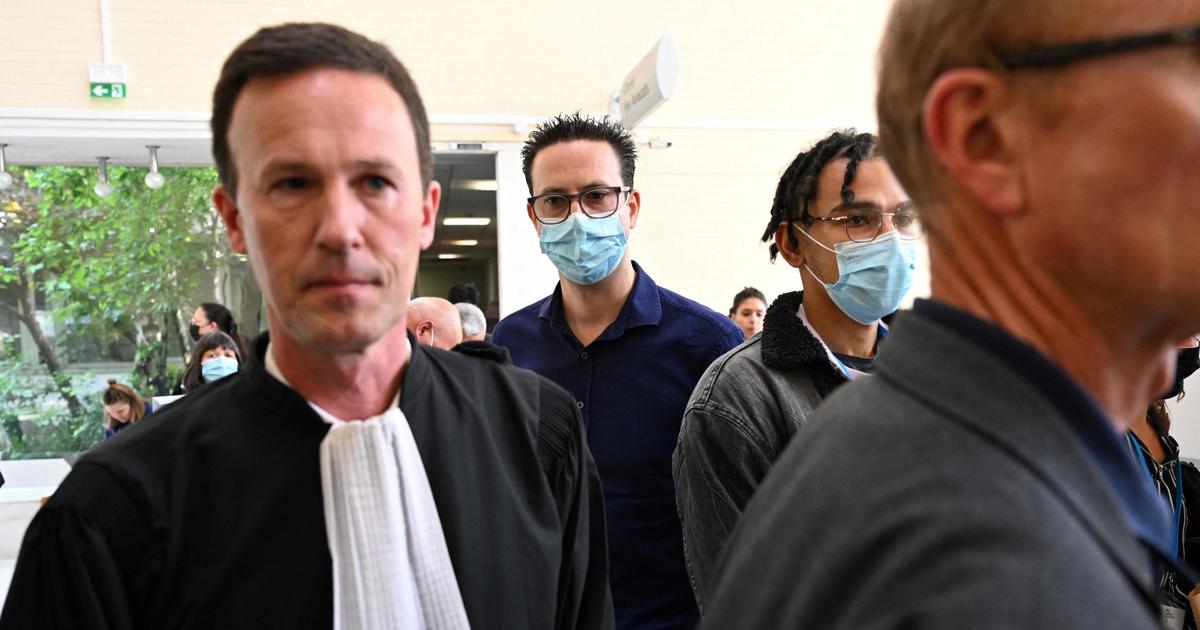“
We feel morally responsible
”.
At the trial of the Brétigny rail disaster, the railway executive tried for "
voluntary homicides
" explained on Wednesday that he "
did not pass a day
" without him "
thinking about this terrible accident
" in the summer of 2013 .
Read alsoInvestigation into the Brétigny accident: the forcing of the SNCF
Aged 24 at the time of the events, this former railway executive – who left the SNCF in 2019 – appears for “
involuntary homicides
” and “
involuntary injuries
”.
He faces up to three years in prison and a fine of 45,000 euros.
“My thoughts are with those victims who will relive this disaster.
I have the victims in mind, I recognize the families... Not a day has gone by that I don't think about this terrible accident”.
The railway executive tried for "intentional homicides"
After having presented the two legal entities also prosecuted, the National SNCF Company and the SNCF Network track manager (formerly the French rail network), the Evry criminal court set out on Wednesday to return to the personality of the defendant, at length interrogates.
“
We feel morally responsible, the train derailed in front of my office.
I wasn't there that day, but if I had been there I would have seen the train derail outside my window
," the man, now 33, wearing a blue shirt, told the stand. and dark glasses.
Seven dead and more than 400 injured
In an introductory remark, he had soberly indicated that he was “
very moved
”: “
My thoughts go out to these victims who will relive this disaster.
I have the victims in mind, I recognize the families... Not a day has gone by that I don't think about this terrible accident
”.
The former local director, who now works in Lyon in another company, will have to answer for a “
faulty assessment
”: that of having carried out “
only the last inspection of the tracks
”, with “
manifestly insufficient
” attention.
Throughout the investigation, he assured that he had not detected any anomaly during this tour carried out eight days before the derailment of the Intercités Paris-Limoges at Brétigny station, which left seven dead and more than 400 injured, July 12, 2013. In question, the reversal of a steel fishplate - a sort of large staple connecting two consecutive rails - which derailed the train.
50 km of tracks to manage
Born in Lyon, the future railway worker was training as an engineer when, he said, he
fell in love with the
'
track
' part.
A “
more exciting, manual and physical
” job.
First in alternation from 2011, between weeks of training and fieldwork, he landed his first job at the SNCF in October 2012, as a “
production unit safety assistant
” in Juvisy (Essonne).
Responsible for staff safety.
To obtain this authorization, he maintains that he had to work on
the SNCF safety “
references ” for months.
In February 2013, he became local manager at Brétigny station: "
a challenge
" for a 23-year-old young man, who finds himself at the head of a "
team of around twenty people
" and must manage 50 kilometers of routes.
“
Heavy workload
”
“
Happy
” with this new position, the railway worker evokes “
a heavy workload
”, added “
to the stress of the hazard
”, either strikes or personal accidents.
An SMS projected at the hearing illustrates his state of mind at the time: “
Very hard job physically and mentally.
I don't have a lot of time for myself because I wake up at 5.50 am and arrive at my apartment at 7.45 pm
”.
“
Have you got a vacation?
Can you breathe?
asks the president.
On vacation, he was precisely on the day of the derailment.
"
Alert to the incident
", he arrived the next day on the scene where he helped to "
rehabilitate the network
".
After the disaster, the railway worker left Brétigny in 2014. Despite a call for applications, “
there were not many responses
,” he slipped.
Read alsoBrétigny derailment: the double standard of the judicial investigation
At the end of her hearing, Marie-Claude Desjeux, the president of the National Federation of Victims of Attacks (Fenvac) was invited by the president to say a few words to the defendant.
"
The victims need truths (...), if you don't answer, it will be a second disaster, give them the opportunity to rebuild themselves
," she said at the end of the hearing.

